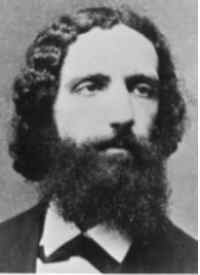Richard of St. Victor’s De Trinitate, Ch.19 (Joseph)
Here Richard spells out more fully than before the nature of shared love (condilectus). Here he offers one main argument (A.1-3) from supreme shared love for the Trinity and then a follow-up argument (B.1-3) again from supreme shared love for the Trinity. So (A) consider the nature of shared love:
- If one person loves another and only he loves only her, there is love but not shared love.
- If two mutually love only each other (if the affection of each goes out to the other), again there is love but not shared love.
- Shared love exists only if a third person is loved by two persons jointly:
“Shared love is properly said to exist when a third person is loved by two persons harmoniously and in community, and the affection of the two persons is fused into one affection by the flame of love for the third.” (Richard of St. Victor, On the Trinity, p.392)
(This is as close as we ever get to a characterization of shared love.)
So, in divinity, if there is shared love, there are at least three persons.Read More »Richard of St. Victor’s De Trinitate, Ch.19 (Joseph)

